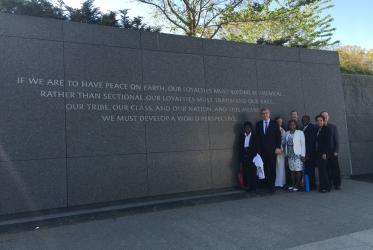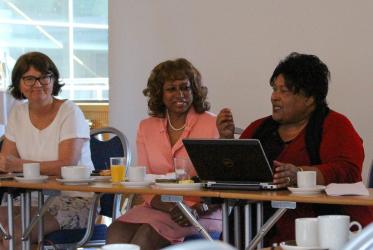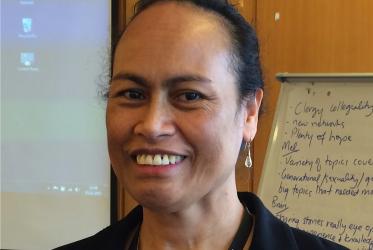Displaying 61 - 78 of 78
09 July 2016
Tveit in South Africa: “ We know. We dare. We can.”
12 June 2016
USA Racial Justice Accompaniment Visit
18 April 2016
Church challenge: Welcoming "strangers" in a climate of fear
18 November 2015
WCC condemns mass killing in Charleston
18 June 2015
Advent protests in New York City
16 December 2014
WCC honours the legacy of Mandela
06 December 2013







